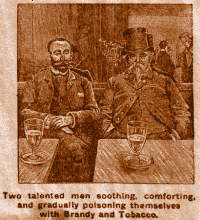 David Moon at Knoxvillebiz decries reliance on the federal government. He is particularly incensed by the money provided to Fannie Mae and Freddie Mac, (Mortgage giants). I disagree with his position but I agree this whole bailout business has been a boon to the banks and little has been asked in return. I worry about the mortgage holders, not the villains who preyed on them like deranged vultures.
David Moon at Knoxvillebiz decries reliance on the federal government. He is particularly incensed by the money provided to Fannie Mae and Freddie Mac, (Mortgage giants). I disagree with his position but I agree this whole bailout business has been a boon to the banks and little has been asked in return. I worry about the mortgage holders, not the villains who preyed on them like deranged vultures.
Edward Lotterman at TwinCities.com explains the difference between cyclical and structural problems in the economy. He explains that the problems besetting us are structural and take a long time to sort out. Lotterman is excellent teacher of economics. If you follow his columns you will pick up the jargon and understand the key terms.
Tell me I’m awesome every day — I’ll pay you. is the intriguing name of Jay Hancock’s current column. It seems there is a company that will call you up once a day for a month for $10 and tell you how awesome you are. I will now quote the quote Mr. Hancock uses from the company’s advertisement (Do you suppose I will ever get the opportunity to quote the quote from another quote?) –
With AwesomenessReminders, a real person will call you every day to tell you how much you rock. If you’re not around, we will leave you a voicemail. Our founder, Zack Burt, has studied psychology in-depth at the university level and found that social reinforcement is critical to maintaining our “frames”, also known as our “point of view”. Getting positive social feedback, via a daily reminder call, is instrumental to progress. Experts agree. This study from Wake Forest University also shows that social feedback has clear effects on self-esteem, even if individuals claim that they are unaffected by social feedback.
Keith Chrostowski from the Kansas City Star quotes Milton Friedman, “The social responsibility of business is to increase profits.” (This, of course, is a magnificent philosophy if the destruction of your nation is your intent.) Chrostowski is urging the formation of “B” corporations. This kind of corporation is designed to make a profit and do good, socially useful good. This turns Mr. Friedman’s insane prediliction for Utopian abstractions on its head. There is a web site where the “B” corporation idea is being pushed. You might give it a look.
Jon Talton in his column, Sound Economy, writes about the demise of “Shareholder Nation.” This was the idea that the great majority of Americans would realize the sound investment qualities of the stock market and invest their money. These Americans were taken to the cleaners in the last two years and are fleeing the stock market and its pseudo security. The idea of shareholder nation has fallen victim to the cold, naked greed and incompetence of our banking class.
Loren Steffy, writing for the Houston Chronicle, explains the game that British Petroleum is playing with those injured by its gross incompetence. It seems that if you accept payment now before you have any real concept of the continuing damage you sign away your right to sue. If you refrain from accepting the settlement offer, you face years of litigation. It is difficult to find any column by Steffy to be anything but a good read, very consistent high quality.
 It is difficult decision for me to make, but I have decided to talk about the government response to the spill and here is my opinion.
It is difficult decision for me to make, but I have decided to talk about the government response to the spill and here is my opinion.
The federal government’s response to the catastrophe in the gulf was ill conceived, strongly favorable to BP, a failure of leadership and grossly incompetent. The government failed in its most basic responsibility to protect its citizens and threw its lot in with the perpetrators of a vast economic disaster. It is difficult to conceive of any possible decision making worse than what the government has done. It calls into question the basic competence of the current administration.












You must be logged in to post a comment.